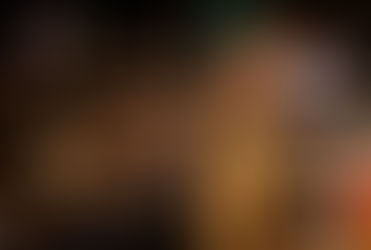Hansel and Gretel
- Chris ORourke
- Feb 10, 2020
- 4 min read

***
Someone Else's Childhood
It sounds like a promising idea. Theatre Lovett and Irish National Opera relocating Englebert Humperdinck’s 1893 fairy tale opera, "Hansel and Gretel," inside a noir hotel straight out of the Golden Age of Hollywood. Yet when babes in the wood becomes babes in the hotel it never quite rings true. Especially with the English libretto constantly referencing the woods that the staging is striving unsuccessfully to reimagine. Feeling curiously heavy for something aiming to lure a young audience to opera, "Hansel and Gretel" looks too scared of being scary even by today’s family friendly standards. Thankfully its impressive cast, some terrific singing and first rate musicians draw us along a rich trail of comic and musical delights, helping "Hansel and Gretel" finally find its way home.

Opening like a silent movie being cinematically scored, musicians of Irish National Opera Ensemble, led by conductor and pianist Richard Pierson, perform live onstage with conical party hats, suggesting witches. Or dunces. Meanwhile Raymond Keane’s corpse like Night-watchman steals the show from the get-go, moving about in deathly, mime-like silence. If the stage hints of a haunted house, it’s not of the Frankenstein variety so much as the Abbott and Costello Meet Frankenstein variety. Leading to a strange juxtaposition with Amelie Metcalfe and Ronan Miller’s arrival as the silent, lost children of the Dew Fairy, sung superbly by soprano Emma Nash throughout. Stalking the stage in yellow raincoats, as if the chilling child figure from Don’t Look Now rambled into the wrong movie, Metcalfe and Miller create a momentary apology of grown up tension. Before the cartoon antics begin as the libretto goes to war with the staging.

The arrival of Hansel and Gretel sees mezzo-soprano Raphaela Mangan’s cheeky Hansel, and soprano Amy Ní Fhearraigh’s adorable Gretel, with her Minnie Mouse hair ribbon, immediately falling foul of soprano Miriam Murphy as Mother. As the two hungry imps stray into the deeper, darker recesses of the hotel, they finally arrive at the beautiful witches kitchen, played wonderfully by mezzo-soprano Carolyn Dobbin. Meanwhile baritone Ben McAteer as Father worries about his children’s fate and, along with mother, sets out to find them. Unaware Hansel is being prepared to be baked alive.

Under co-directors Muireann Ahern and Louis Lovett, Jamie Vartan’s suffocating set struggles to find space. While his superb sentry box proves to be a marvel of ingenuity, as are some terrific props, almost a third of the stage yields itself to a pyrrhic victory of musicians. The lion’s share of another third getting lost to an underused elevator and balcony. The final third, and most visually interesting of all, sees most of Jack Phelan’s beautifully evocative video designs being crammed into a semi shadowed corner, with Sarah Jane Shiels' retro lighting reinforcing the feeling of claustrophobia. Space at a premium, performers are forced front and stage left, elbowing for room inside a cramped playing area. A space requiring not so much imaginative leaps as imaginative pole vaults, despite some clever prompts. Yet even then it's hard to visualise the space as anything other than an overpoweringly gloomy hotel lobby. In which two kids sing about woods while standing outside a lift. That’s providing you’re not already distracted by poorly positioned surtitles angled either side of the stage. Or by yet another imperceptible shadow moving unnecessarily around the obscured balcony. The eye made restless for always missing something, likely to strain even the most ardent child’s attention.

Programme notes playfully suggest that librettist rank low on the literary hierarchy. In the case of librettist, Adelheid Wette, Humperdinck’s sister, you tend to see why. Even allowing for David Pountney’s unsympathetic translation into English. Constructed into three acts from a hotchpotch of German fairytales, nursery rhymes and folks songs strung loosely around a version of Hansel and Gretel, Wette’s libretto, written with children in mind, has many fine highs. Such as Act Two’s sublime classic Where each child lays down its head. Yet it can still feel like an operatic greatest hits, a collection of well made songs, many of them dearly loved, thematically rather than organically held together. With Humperdinck’s remarkable score providing the musical gel, brought vividly alive by Irish National Opera Ensemble conducted by Richard Pierson. Across the board, strong performances and stellar singing ensure moments of genuine delight, despite less than stellar acoustics, with Mangan and Ní Fhearraigh acquitting themselves wonderfully well. Fhearraigh’s irresistible quirks and mannerisms ensuring Gretel is an unforgettable delight. As is Dobbin’s wickedly wonderful witch.

Theatre Lovett’s visual sensibility and humour usually prove irresistible. And while their humour is still irresistible, "Hansel and Gretel's" hotel gets stuck in the wrong frame. Going to war for no good reason with Wette's libretto, which starts to feel like it, too, walked in from another movie. Steeped in the visual nostalgia of grandparents, or great grandparents, for whom RKO serials had the power to thrill, "Hansel and Gretel" comes to resemble someone else's childhood. Likely to be more demanding on younger children than INO’s superlative La Cenerentola/Cinderella. Especially children whose childhoods were spent with Sabrina or other such scary witches, and who are already familiar with countless reimagined fairytales given a modern twist they can directly relate to. That said, there's a lot of humour and charm to be had in "Hansel and Gretel". And singing, music, and performances are just sublime.
"Hansel and Gretel" by Engelbert Humperdinck, libretto by Adelheid Wette, in a Theatre Lovett, Irish National Opera, Abbey Theatre co-production, runs at The Abbey Theatre until February 15 before undertaking a select national tour.
For more information, visit The Abbey Theatre, Theatre Lovett or Irish National Opera.





















